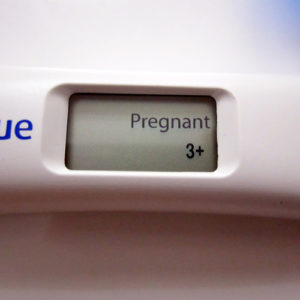Miscarriage is one of the most emotionally painful experiences for a woman to go through. In the UK, 1 in 4 women under 35 will have a miscarriage before 20 weeks of pregnancy.
While the loss of a pregnancy is heartbreaking, there is hope – studies show around 85% of women will have a successful pregnancy after miscarriage at some point. Even after 2 or more miscarriages, the odds are favourable, with an estimated 75% of women going on to carry a baby to term.
But what does this mean for your fertility and chances of conceiving after pregnancy loss? Here, we’ll look at how miscarriage can impact your body, guide you through trying to conceive again, and answer common questions women have about fertility after miscarriage.
The Emotional and Physical Impact of Miscarriage
Suffering a miscarriage is devastating on many levels. As well as the enormous emotional grief, your body goes through physical changes too.
Hormones like hCG and progesterone rise dramatically in early pregnancy. When pregnancy ends, these hormone levels quickly drop, which can cause physical symptoms like cramps, bleeding and passing tissue. For many women, the physical effects can be traumatic.
Your menstrual cycle and ovulation will also be disrupted after miscarriage. It can take 4-6 weeks for your period to return and for your reproductive hormones to stabilise. The timing varies depending on factors like how far along the pregnancy was.
For some women, ovulation resumes fairly quickly and a new pregnancy can occur right away. For others, it may take several cycles for ovulation to come back regularly. This demonstrates how varied and individual recovery can be.
When Is It Safe To Try Conceiving Again?
Most experts advise waiting until you feel emotionally and physically ready before trying to conceive after miscarriage. While 3-6 months is often recommended, there are no strict rules. Some couples start trying again sooner, while others wait longer – go at your own pace.
Here are some reasons your doctor may advise waiting:
- To Allow Physical Recovery – Your body needs time to heal and for reproductive hormones to stabilise after pregnancy loss. For some, a few cycles is enough. For others, longer may be needed.
- After Molar Pregnancy – With this type of pregnancy complication, you’ll need monitoring and can’t try conceiving for around 12 months.
- To Run Tests – Your doctor may want to investigate possible causes of miscarriage through tests before recommending conception. This is especially true after multiple losses.
- After Surgical Management – Procedures like D&C can sometimes cause scarring or other issues needing time to resolve before trying again.
- To Avoid Further Loss – There are mixed opinions on whether conceiving too soon raises miscarriage risk. Some doctors advise waiting for hCG to return to zero.
Ultimately the right time is when you feel physically and emotionally ready. Don’t rush into TTC before you’ve had time to process the loss and grief.
Does Miscarriage Affect Long Term Fertility?
For most women, a one-off miscarriage does not negatively impact your long-term fertility or chances of having a healthy pregnancy. Studies of women who had a single loss show similar subsequent conception and live birth rates to women who’ve never miscarried.
However, for a minority of women, recurring miscarriages may signal an underlying health issue requiring treatment. Causes can include uterine abnormalities, blood clotting disorders and autoimmune issues. The good news is that with proper medical care, many at risk of recurrent loss can go on to have success.
Understanding Recurrent Pregnancy Loss
A recurrent miscarriage is defined as 3 or more consecutive pregnancy losses before 20 weeks. Studies show the more miscarriages a woman has, the higher her risk of subsequent loss.
However, even for women who’ve had multiple miscarriages the odds of eventually having a baby are favourable. Around 75% will go on to have a successful pregnancy after recurrent loss through proper medical management.
Investigating the potential causes of recurrent miscarriage is crucial. Testing may include:
- Blood tests to check hormone levels and identify conditions like thyroid disorders
- Checking for antiphospholipid syndrome, a disorder causing blood clots in the placenta
- Genetic tests of pregnancy tissue to identify any abnormalities
- Pelvic ultrasound to examine the structure of the uterus
- Hysteroscopy to check for uterine abnormalities
Treatment depends on the cause but may include blood thinners, hormones like progesterone, or surgery to correct structural problems. Support from a recurrent miscarriage specialist is invaluable.
Supporting Your Emotional Health
The grief and trauma of pregnancy loss can be overwhelming. Be gentle with yourself and allow time to process the complex emotions. Seeking support can aid healing:
- Talk to loved ones – Share your feelings with those close to you. Join miscarriage support groups to connect with others who understand.
- Consider counselling – Trained pregnancy loss counsellors can help you work through grief. Many specialise in fertility-related trauma.
- Honour your loss – Rituals like planting a memorial tree or writing a letter to your baby can help provide closure.
- Limit social media – Seeing pregnancy announcements could trigger hurt. Take a break if needed. Surround yourself with supportive voices.
The profound emotional effects cannot be understated. Grief, trauma and anxiety are all normal reactions. Don’t underestimate the value of support and counselling services.
Preparing For Pregnancy After Loss
When you feel ready to try conceiving again, preparing mentally and physically can help set you up for success:
- Consider genetic testing – Testing miscarriage tissue can sometimes reveal chromosomal issues. Genetic counselling provides guidance for future chances.
- Optimise health – Focus on wellbeing through diet, exercise, sleep and stress relief. Limit alcohol, caffeine and smoking. Start folic acid.
- Chart your cycle – Use ovulation prediction kits and basal body temperature tracking to understand your fertility signs and maximise timing.
- Visit your doctor – Have a preconception checkup to ensure you are fit for pregnancy. Discuss any concerns and testing recommendations.
- Try relaxation techniques – Anxiety is common after loss. Yoga, meditation and therapy can help manage fears should you conceive again.
With time and care, the hope of a successful pregnancy and new life ahead remains.
What About Fertility Treatments?
If you have difficulties conceiving following miscarriage, see your doctor to explore options:
- Ovulation induction – Medications like clomiphene may encourage ovulation in women with irregular cycles. Timed intercourse or IUI can then occur.
- IVF – In vitro fertilisation with your egg and partner’s sperm can facilitate conception. Genetic testing of embryos may help select healthy ones.
- Donor eggs/sperm – Eggs or sperm from a donor provides an alternative when miscarriage relates to genetic parental defects.
- Surrogacy – If recurrent losses relate to uterine problems, surrogacy using your egg and partner’s sperm enables pregnancy.
- Surgical procedures – Issues like uterine polyps, scar tissue or septums may be correctable through procedures like hysteroscopy.
Fertility assistance under the guidance of a reproductive endocrinologist provides hope for those struggling after loss. Certain treatments may be subsidised through Medicare after meeting eligibility criteria.
FAQs: Miscarriage and Fertility
How soon can I get pregnant after miscarriage?
You can conceive in the first cycle after loss if you ovulate. However, doctors recommend waiting until at least after your first period to date the new pregnancy accurately.
How will miscarriage affect my fertility long-term?
For most women, a single miscarriage does not affect your long-term fertility. Recurrent losses may require medical testing.
When will my periods return to normal after pregnancy loss?
It often takes 4-6 weeks after miscarriage for your period to return. The timeline varies based on factors like your gestational stage at the time of loss.
Should I see a doctor before trying to conceive again?
It’s a good idea to see your doctor for a preconception check-up. They can ensure you are physically ready and advise about any recommended tests.
Are there any risks to conceiving too soon after miscarriage?
Opinions vary on risks of close intervals between pregnancy. Some doctors advise waiting for hCG to return to zero to date the new pregnancy accurately.
Coping With Miscarriage and Looking Forward
For most couples, the news that fertility is unlikely affected by miscarriage can be reassuring. However, the profound emotional effects cannot be understated. Grief, trauma and anxiety are all normal reactions. Don’t underestimate the value of support and counselling services.
When you feel ready to try again, either naturally or with assistance, know that the odds are in your favour. With time and care, the hope of a successful pregnancy and new life ahead remains.
The journey through pregnancy loss will shape you, but does not define you. Have faith in your resilience and your body’s ability to heal. While the road may be long, you do not walk it alone. With support, self-care and hope, brighter days are ahead.
Photo by Anthony Cunningham for Zoom Baby
Zoom Baby is a leading supplier of Pregnancy Tests and Ovulation Test Kits





